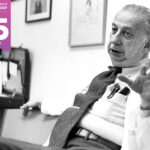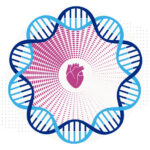It’s American Heart Month: Test your knowledge of congenital heart defects

Each year, about 1 percent of all babies are born with a congenital heart defect (CHD). This makes CHDs the most common type of birth defect in the United States. But how much do you know about congenital heart defects? Test your knowledge by taking our True/False quiz.
True or False? A congenital heart defect affects the structure of the heart.
True. CHDs occur when there are problems in the way the heart or major blood vessels around the heart are formed before birth. There are many different types of congenital heart defects, and can range from mild to life threatening.
True or False? A heart defect is always something you are born with.
True. By definition, a congenital heart defect is something a person is born with. While many CHDs are diagnosed before birth or shortly after, some people can live for years without knowing they have anything wrong with their heart, such as our patient Jack Harris Sr.
True or False? Having a heart murmur means you have a CHD.
False. A heart murmur is an extra sound heard when your doctor listens to your heart. While a heart murmur can sometimes be the sign of a heart problem, most heart murmurs in children are normal sounds, caused by blood moving through the heart’s chambers and valves. Your pediatrician will decide if your child needs to be seen by a cardiologist.
True or False? If you have a CHD, you can’t be active.
False. Most, if not all, people with CHD can find some way to exercise safely. In fact, many competitive athletes have CHD, including Olympic snowboarder Shaun White. At Boston Children’s our Cardiac Fitness Program was built on the belief that people with CHD can and should achieve the same benefits of exercise as their peers.
True or False? Not everyone with a CHD needs open-heart surgery.
True. While many people with heart defects need surgery shortly after birth or during childhood, this isn’t true for everyone. Some people never need surgery, but see their cardiologist regularly to make sure their condition is stable.
True or False? Once you have heart surgery, you no longer need care.
False. Those born with a congenital heart defect need to have regular visits with a cardiologist their entire life. This will help ensure your heart stays as healthy as possible. Adults with a heart defect should be sure to see a cardiologist who specializes in congenital heart disease. At Boston Children’s, our Adult Congenital Heart Program is designed especially for adult patients of all ages.
Learn more about the Heart Center.
Related Posts :
-

Mending injured hearts: Lessons from newborns?
When the heart is injured, as in a myocardial infarction, the damaged heart muscle cannot regenerate — instead, scar tissue forms. ...
-

A surgeon’s last-minute trip to Sri Lanka reduces children’s wait for needed heart repair
Last year, Dr. Christopher Baird got an offer he couldn’t refuse — something that happens often as he travels the ...
-

The people and advancements behind 75 years of Boston Children’s Cardiology
Boston Children’s Department of Cardiology has more than 100 pediatric and adult cardiologists, over 40 clinical fellows learning the ...
-

In the genetics of congenital heart disease, noncoding DNA fills in some blanks
Researchers have been chipping away at the genetic causes of congenital heart disease (CHD) for a couple of decades. About 45 ...





